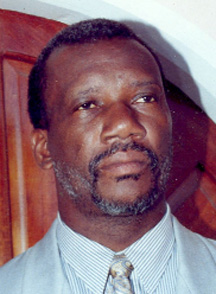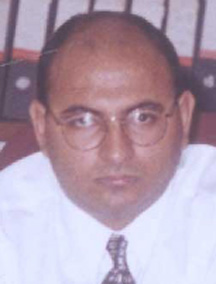Lone Opposition party member at last evening’s edition of the corruption debate on NCN, Khemraj Ramjattan of the Alliance For Change challenged members of the opposite panel to justify why it was Guyana was spending monies on the Marriott Hotel and asked if the project was so feasible why private entities did not finance it entirely.
Following from Sunday’s first programme which looked at the Amaila Falls Hydroelectric Project, yesterday’s programme was the second in a seven part series to address claims of corruption in Government projects put on by NCN. The panel comprised Head of National Industrial and Commercial Invest-ments Limited (NICIL), Winston Brassington; Minister of Finance, Dr. Ashni Singh; Government Advisor on Empowerment, Odinga Lumumba on one side and Ramjattan and former Chairman of the Private Sector Commission, Gerry Gouveia. Absent was a representative of A Partnership for National Unity (APNU).
Ramjattan argued that with the proposed financing arrangement of a syndicated loan and senior debt, the project could then be sold to one of the Government’s “cronies” leaving the Guyanese taxpayer holding the bag. With senior debt, one or more category of investor will have the first choice of being repaid should the project go under for one reason or another. “There will be a sell-out of the company when things go bad,” he said.

“The NICIL monies for this project should have gone into the Consolidated Fund, in view of there being so many other priorities,” said Ramjattan. He noted that one of the alternatives uses of the money is that it would have been used to build a permanent fixture across the Demerara River. He said too that some of the money could be used to clean and fix up the city after which it would become attractive for investors in the tourism sector, whether they be local, regional or overseas. “The AFC can see no commercial justification for spending this huge set of taxpayers’ money on a hotel when occupancy levels are so low,” he said.
He noted that when the Opposition asked for the feasibility study for the project it was not made available. However Brassington said that there has been a feasibility study which was done in 2010 by a “major American firm” and it is being updated. He said that the Opposition had an opportunity to attend a closed door session to discuss the findings of the feasibility study because of issues of confidentiality and sensitivity but this offer was not accepted.
Minister Singh and Lumumba contended that Ramjattan was critical of the project because it would directly compete with the Pegasus Hotel, which is owned by AFC member and supporter Robert Badal and that he must “come clean” on the reason for his being so critical of it.
Lumumba said that the project will create jobs and insisted that the project was a feasible one. “This project is feasible,” said Brassington. “And over the years it has become increasingly more feasible” he said. He added that the feasibility study gave the project overall rates of return in excess of 10 percent, based on all of the current numbers. “Now the reason that the Government is investing one-third of the funds, is because while the project is feasible, in order to enable the private investment, the project is not at a level where the internal rate of return is high enough but it is still feasible,” he said.

Singh said that at the point that Government decided to get involved in the project on the basis of a public private partnership, “We went immediately to the public. We invited expressions of interest and received those. We advertise for bids for construction and this was also put in the public domain as well. The award of the contract for supervision went through a public process. And these facts are well documented.”
Singh disagreed with Ramjattan on whether the project was a needed one and said that the assertion that the project is being executed using public funds is not accurate. “It is a public-private partnership, and I hardly think that one could argue with an initiative that will see some US$50 million invested, the overwhelming majority of which is private investment,” he said. He noted that Government is making an initial investment aimed at kick-starting the project and attracting larger financing from private sources.
But Ramjattan retorted, “Indeed if it is going to be a profitable thing, why is the private sector not coming in exclusively to deal with these things.” He continued, “The monies that we are putting up here is a huge set and it could be that the project is not profitable.” He said that in the two or three year construction period, there will be interest payments and no opportunity of the project “earning” from its operation during this phase.
“It is difficult to prove but I believe that there is a special syndicated set of persons that will take priority [if the project goes bust],” he said.




